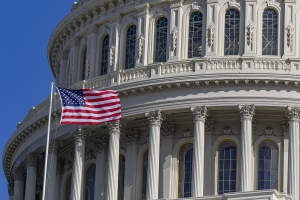Christianity Is the End of Religion
From the time God saved me at 21 years old, I’ve always been fascinated by the parables of Jesus. Three of the very first books I bought as a brand new Christian were Simon Kistemaker’s book The Parables: Understanding the Stories Jesus Told, James Boice’s book The Parables of Jesus, and Interpreting the Parables by Craig Blomberg. Not knowing anything about Reformed theology at that point in my life, these three books are what God used to develop my initial Reformed theological sensitivities. I highly recommend them all.
But a couple years ago when I was considering preaching through the parables (which I never ended up doing, by the way) one of my former professors suggested that I pick up Robert Farrar Capon’s thick book Kingdom, Grace, Judgement: Paradox, Outrage, and Vindication in the Parables of Jesus. He warned me that I would not agree with some of what Capon wrote but insisted that it would nevertheless benefit my study of the parables greatly. It sat on my shelf for a while until my friend Mark Miller asked me if I owned the book. I didn’t think I did and so I ordered it. After I ordered it and went to stock it on my bookshelf, I realized I already had it (You ever done that? That’s the downside of having a large library).
Well, I picked it up and started reading. And while there were some sections that left me scratching my head (just as my prof told me), I discovered some deeply insightful nuggets of gospel truth. My friends over at Mockingbird (if you don’t read that blog, you’re probably not a Christian) posted one of my favorite sections from Capon’s book a couple days ago. This is good stuff.
Enjoy…
What role have I left for religion? None. And I have left none because the Gospel of our Lord and Savior Jesus Christ leaves none. Christianity is not a religion; it is the announcement of the end of religion.
Religion consists of all the things (believing, behaving, worshiping, sacrificing) the human race has ever thought it had to do to get right with God. About those things, Christianity has only two comments to make. The first is that none of them ever had the least chance of doing the trick: the blood of bulls and goats can never take away sins (see the Epistle to the Hebrews) and no effort of ours to keep the law of God can ever finally succeed (see the Epistle to the Romans). The second is that everything religion tried (and failed) to do has been perfectly done, once and for all, by Jesus in his death and resurrection. For Christians, therefore, the entire religion shop has been closed, boarded up, and forgotten. The church is not in the religion business. It never has been and it never will be, in spite of all the ecclesiastical turkeys through two thousand years who have acted as if religion was their stock in trade. The church, instead, is in the Gospel-proclaiming business. It is not here to bring the world the bad news that God will think kindly about us only after we have gone through certain creedal, liturgical and ethical wickets; it is here to bring the world the Good News that “while we were yet sinners, Christ died for the ungodly.” It is here, in short, for no religious purpose at all, only to announce the Gospel of free grace.
Pg. 252-253





























